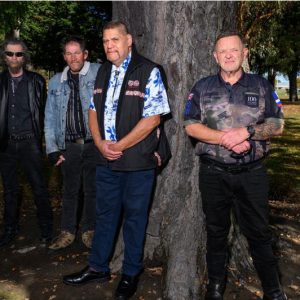Slow progress in establishing the ground rules for New Zealand’s biggest ever inquiry is causing further pain for state care abuse survivors. New information also shows a formal proposal on the inquiry is yet to reach Cabinet - which must approve the final inquiry scope before anyone can be heard. Teuila Fuatai reports.
Published in Newsroom
Three months after receiving a report on its proposed terms of reference, Minister of Internal Affairs Tracey Martin is yet to complete the next step in the Royal Commission of Inquiry into abuse in state care.
Martin, alongside Prime Minister Jacinda Ardern, announced the inquiry as the “final commitment” of the coalition Government’s 100 day plan at the beginning of February. At the time, the stated time-frame for it to begin to consider evidence was mid-to-late 2018.
However, in a letter addressed to law firm Cooper Legal – which represents more than 900 people with claims of abuse under state care – Martin reveals she is yet to finalise her proposal to Cabinet on the inquiry. The proposal is supposed to take into account Commission chair Sir Anand Satyanand’s report on public submissions about the draft terms of reference. While Satyanand submitted his report on May 30, Martin is yet to follow this up with a proposal to Cabinet.
In her September 5 letter, Martin says: “During public consultation, the Royal Commission received a large number of submissions on a range of issues, including on the time period and the scope of the discretion to consider new matters arising after 1999″.
“I am giving careful and active consideration to all the issues raised before I finalise my proposal to Cabinet.”
Before the inquiry can proceed to evidential stage, Cabinet must decide on its final terms of reference, additional commission members, and budget. That decision-making process is due to begin once Martin makes her formal proposal on the inquiry to Cabinet.
Sonja Cooper, principal at Cooper Law, said no explanation about the prolonged decision-making time has been given to her or her clients.
“We are concerned and dismayed that the Minister has not, according to her letter, taken steps to make proposals to Cabinet so that the terms of reference can be finalised for the Royal Commission and it can start its core work,” Cooper said.
“The other Commissioners need to be appointed urgently as well, and the Commission needs to get underway with its work by the end of this year.”
If this fails, it is unlikely that the “core work” of the inquiry will begin before February, which will mark a whole year on from the the Royal Commission’s establishment, she says.
“Given that survivors are dying while they wait, and given that the inadequate processes currently in place are continuing, these delays only make the longer term purpose of the Royal Commission less meaningful.”
When asked for comment on the prolonged process, Martin outlined a number of factors contributing to it.
“Establishing an inquiry of this magnitude is similar to setting up a small government agency,” she said.
“The time taken reflects that we are giving serious consideration to the inquiry’s final shape and that there is a lot of work to do in establishing a Royal Commission, from considering the scope to budget, membership, and operational set up.”
Since the Commission released its draft terms of reference, criticism has focused on the proposed 50 year time limit – ending December 31 1999 – and the exclusion of religious institutions. Advocates for previous, and current, state care children believe the inquiry’s scope should be widened to include abuse that occurred after 2000, and in religious institutions.
Martin, who was unable to say when the final terms of reference would be released, stressed the Cabinet proposal did not just involve “me making a decision”.
“There is significant work being done by government departments, particularly Internal Affairs, and there is a working group of ministers considering a range of matters before they go to cabinet for final decisions,” she said.
Satyanand, who echoed the complexities highlighted by Martin, said the amount of time so far had not been ideal.
“We share the concern that it’s taking a long time, but on the other hand it’s a very complex piece of work which is going to be New Zealand’s biggest ever Royal Commission,” he said.
The Commission’s own officials were continuing to work with other Government departments to ensure everything would be ready for the inquiry’s next stage – whenever that would be.
“It will need expenditure of money and effort so they need to get it right. We don’t have a precise figure on how many people went into care during that time. We don’t know how many people will be willing to come forward but we need to be prepared for a great many,” Satyanand said.
Timeframes for previous Royal Commission of Inquiries have varied. In the Royal Commission into building failure caused by the Canterbury Earthquakes, the terms of reference were announced a month after its establishment in March 2011. In the inquiry into the Pike River Coal mine tragedy, evidence hearings began about seven months after it was established in November 2010. Notably, the current Royal Commission is the only one to ever ask for public consultation on a draft terms of reference.
By Teuila Fuatai
Published in Newsroom
7 September 2018



